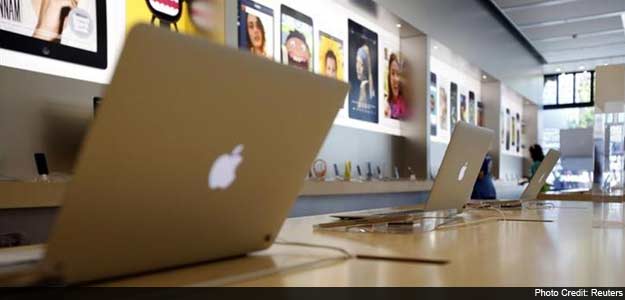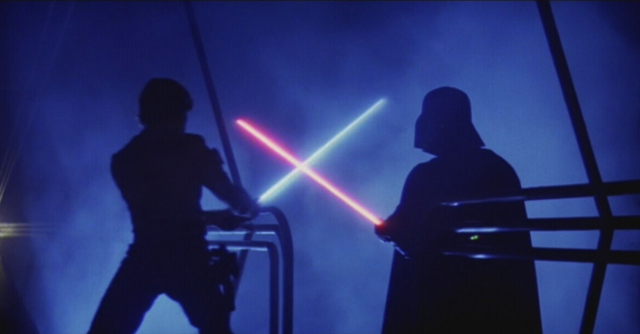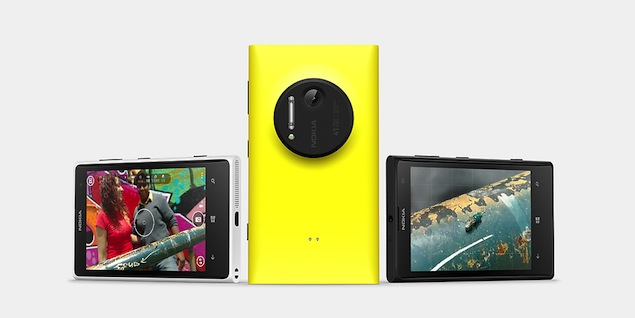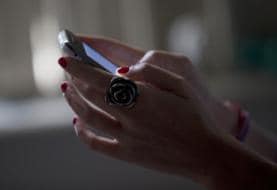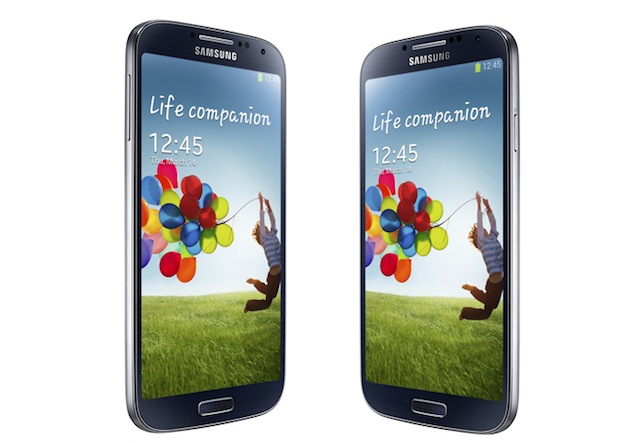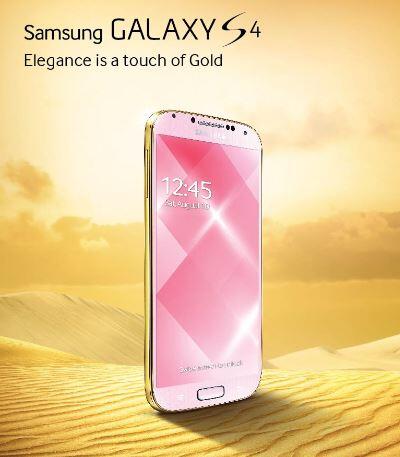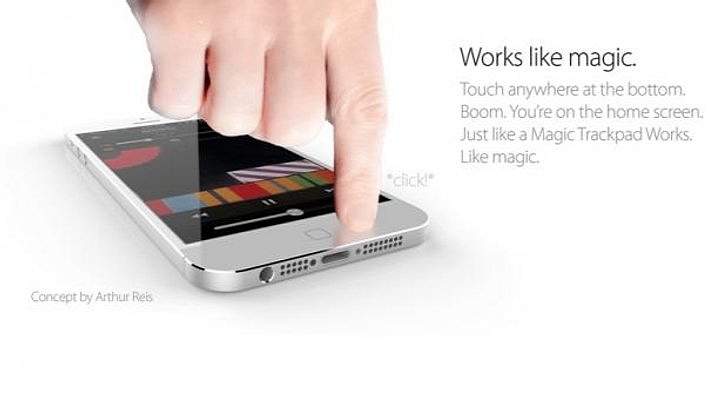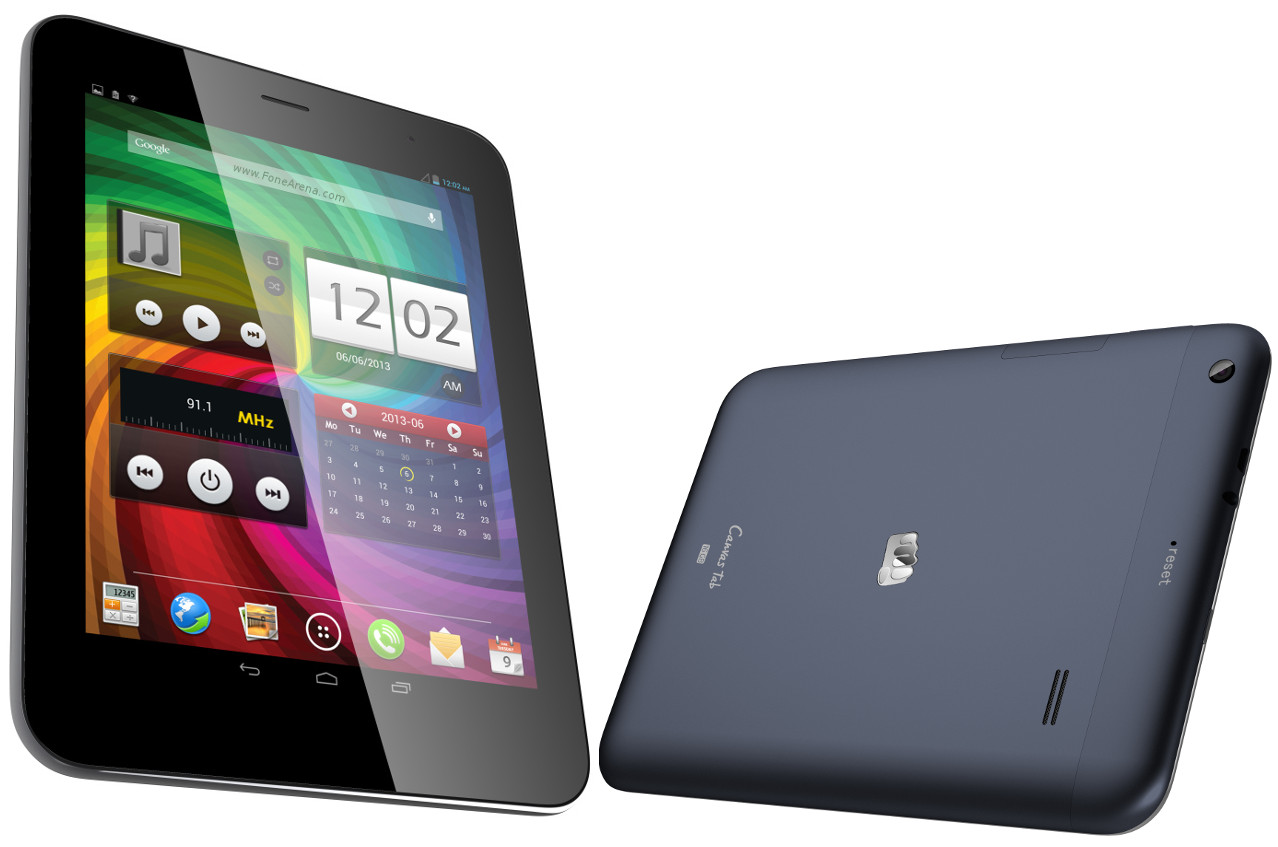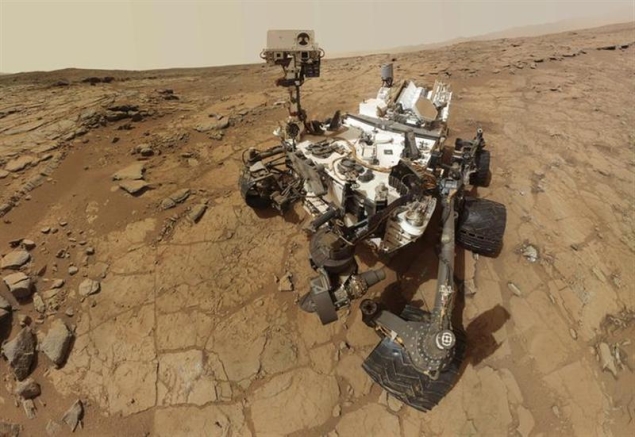
The first scoop of soil analysed by the Curiosity rover reveals that fine materials on the Martian surface may contain "abundant" water, Xinhua reported Thursday citing US researchers.
Curiosity touched down Mars last August and began its 100-day mission of collecting and analysing samples of all kinds in Gale crater, which is near the Martian equator, with its high-tech lasers and scoops.
In this study, researchers from the Rensselaer Polytechnic Institute used the rover's scoop to collect dust, dirt and finely grained soil from a sandy patch known as "Rocknest".
The researchers then fed portions of the fifth scoop into an instrument onboard Curiosity called the Sample Analysis at Mars (SAM) to heat them to 835 degrees Celsius.
"One of the most exciting results from this very first solid sample ingested by Curiosity is the high percentage of water in the soil," said lead author Laurie Leshin, dean of science at the institute.
"About two percent of the soil on the surface of Mars is made up of water, which is a great resource, and interesting scientifically," Leshin said.
The sample also released significant carbon dioxide, oxygen, and sulfur compounds when heated, the researchers reported in the journal Science.
Baking the sample also revealed a compound containing chlorine and oxygen, likely chlorate or perchlorate, previously known only from high-latitude locations on Mars. This finding at Curiosity's equatorial site suggests more global distribution, the researchers said.
In addition to determining the amount of the major gases released, SAM also analysed ratios of isotopes of hydrogen and carbon in the released water and carbon dioxide.
Isotopes are variants of the same chemical element with different numbers of neutrons, and therefore different atomic weights.
The analysis found that the ratio of isotopes in the soil is similar to that found in the atmosphere analysed earlier by Curiosity, indicating that the surface soil has interacted heavily with the atmosphere.
"The isotopic ratios, including hydrogen-to-deuterium ratios and carbon isotopes, tend to support the idea that as the dust is moving around the planet, it's reacting with some of the gases from the atmosphere," Leshin said.
The results shed light on the composition of the planet's surface, while offering direction for future research, said Leshin.
"Mars has kind of a global layer, a layer of surface soil that has been mixed and distributed by frequent dust storms. So a scoop of this stuff is basically a microscopic Mars rock collection," said Leshin.
"If you mix many grains of it together, you probably have an accurate picture of typical martian crust. By learning about it in any one place, you're learning about the entire planet."
These results have implications for future Mars explorers. "We now know there should be abundant, easily accessible water on Mars," said Leshin.
"When we send people, they could scoop up the soil anywhere on the surface, heat it just a bit, and obtain water."

